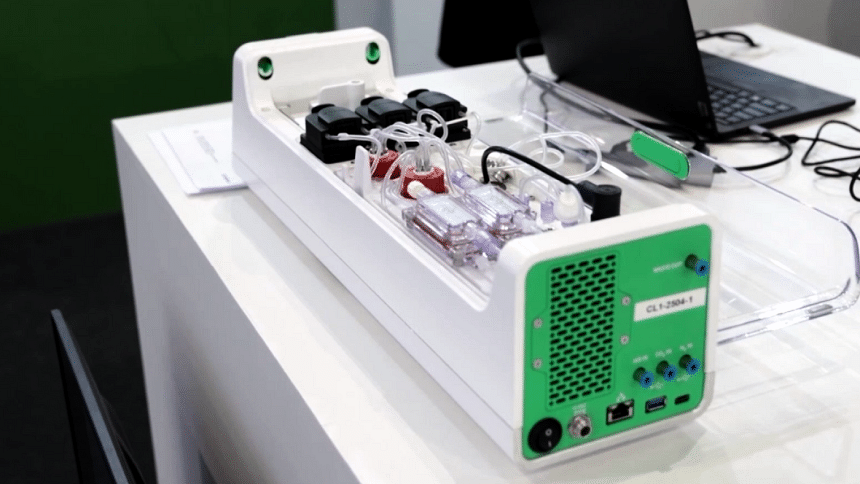The biological computer that runs on living human cells

Cortical Labs, an Australia-based tech company, has recently unveiled the CL1, a 'biological' computer powered by living human neurons. Dubbed the 'Synthetic Biological Intelligence', this unique device allows researchers to study how real neurons process information, potentially offering a more human-relevant alternative to animal testing.
The CL1, officially revealed in the latest MWC 2025 event in Barcelona, is designed to keep neurons alive and functioning for up to six months using an internal life support system, according to Cortical Labs' official website. These neurons are cultivated in a nutrient-rich solution and grow across a silicon chip, which sends and receives electrical impulses to and from the neural structure. This setup creates a closed-loop system where the neurons interact with a simulated digital environment, powered by Cortical Labs' Biological Intelligence Operating System (biOS).
What makes the CL1 unique is its ability to deploy code directly to the neurons, enabling researchers to program and study them in real time. Unlike traditional AI models that attempt to mimic the brain's functions, the CL1 starts with the real thing: self-programming, infinitely flexible neurons that are the result of four billion years of evolution, says the company. This allows scientists to potentially push the boundaries of synthetic biology and intelligence, exploring how neurons adapt, learn, and respond to stimuli.
Cortical Labs says the CL1 device is self-contained, meaning all recordings, applications, and life support systems are housed within it, requiring no external computing power. It's also highly extensible, with USB ports and other connections allowing researchers to plug in cameras, actuators, and other devices for broader experiments. A touchscreen interface makes it easy to monitor system status, view live data, or run pre-packaged assays.

One of the most exciting applications of the CL1 is its potential to revolutionise medical research. By studying how neurons function in real time, scientists can gain unprecedented insights into brain diseases, cognitive processes, and the effects of new drugs or compounds. This could lead to faster, more accurate drug development and a deeper understanding of neurological conditions like Alzheimer's or Parkinson's disease, says Cortical Labs.
Through CL1, the company also addresses ethical concerns in research. By using human neurons instead of animal models, the CL1 provides more relevant data while reducing reliance on animal testing. Plus, its energy-efficient design requires minimal inputs, making it a sustainable option for labs, they say.
According to the tech news platform New Atlas, Cortical plans to commercialize the CL1 in the second half of 2025, with individual units priced around $35,000. The company is also developing a neural network server stack, housing 30 CL1 units, which will be accessible via a cloud-based platform. This setup will allow researchers to remotely conduct experiments, opening up new possibilities for drug discovery, disease modelling, and robotics.
The CL1 represents a bold step forward in the fusion of biology and technology. As Cortical Labs puts it, this is "programmable organic neural networks, born on a silicon chip and living inside a digital world". For researchers, this should be a powerful new tool to unlock the mysteries of the brain. For the rest of us, it's a fascinating glimpse into the future of science – where living cells and silicon chips work together to solve some of humanity's biggest challenges.

 For all latest news, follow The Daily Star's Google News channel.
For all latest news, follow The Daily Star's Google News channel. 





Comments